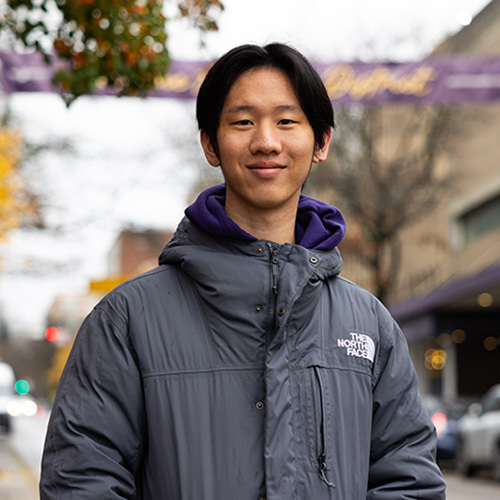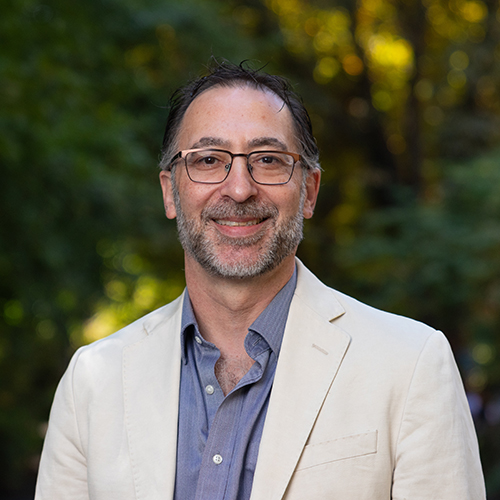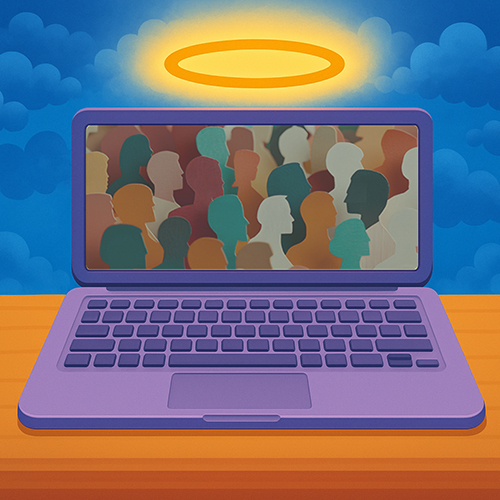Like so much else in the western intellectual tradition, systematic efforts to understand how humans know what we know — what philosophers call “epistemology” — began with the ancient Greeks. But curiosity about human consciousness is almost certainly older than the Greeks. It probably arose at the first moment humans became aware of themselves as thinking beings.
What are we doing when we think? Where do our ideas come from? How does the human brain operate? These are questions we humans have wrestled with for thousands of years. But they retain their fascination, and today a new generation of neuroscientists, psychologists, philosophers, physicians, and artists are bringing a host of new tools to the age-long quest to unlock the secrets of the brain and to understand the nature of human consciousness.

Faculty from the College of Arts and Sciences are playing a central role in this quest to understand the brain. In this issue of Perspectives, you will meet Bing Brunton (Biology), who is seeking to understand the cellular mechanisms by which the brain processes and communicates information. You’ll meet Chantel Prat and Andrea Stocco, psychologists whose research at the Institute for Learning and Brain Sciences (I-LABS) explores how, through technology, two human brains can exchange information unmediated by words or symbols. Jason Yeatman (I-LABS; Speech and Hearing Sciences) is unlocking the brain processes that allow us to read in order to design individualized approaches for treating dyslexia. Sara Goering (Philosophy), an ethicist and key member of a team of engineers developing neural devices, asks not only whether something can be done, but also whether it should be done. Brian Christian, an MFA graduate of the English Department’s Creative Writing Program, has written several best-selling books exploring what it means to be human in an age of artificial intelligence, while faculty from the Digital Arts and Experimental Media program have developed a laboratory and a course through which to explore the connections between art and the brain.
...we are on the threshold of remarkable breakthroughs in our understanding of the organ that makes us human.
Over the past decade, Seattle has emerged as one of the world centers for brain research. The Allen Brain Institute, located in a new facility in South Lake Union, has been one of the catalysts for this effort. So too, of course, are the UW Medical School and the College of Engineering. But a great deal of this work is happening in Seattle because of the extraordinary intellectual breadth and depth of the UW College of Arts and Sciences. No single approach, whether medical, philosophical, or neurological, will ever be sufficient to unravel the complexities of the human brain. But in a college that brings together biologists, mathematicians, computer scientists, artists, philosophers, psychologists, and creative writers, we are on the threshold of remarkable breakthroughs in our understanding of the organ that makes us human. It is an extraordinary prospect.
More Stories

The Public Impact of Private Cities
Geography major Edwin Bai has researched private cities, developed by individuals and corporations, that "take the libertarian idea of low government regulation to the maximum."

The Curious Journey of Chinese Characters
Several Asian countries adapted the Chinese writing system—the oldest writing system still in use—for their own languages. In a new book, Professor Zev Handel shares how that happened.

Can Machines Learn Morality?
UW researchers at the Institute for Learning & Brain Sciences and in the Allen School are exploring the potential for training AI to value altruism.